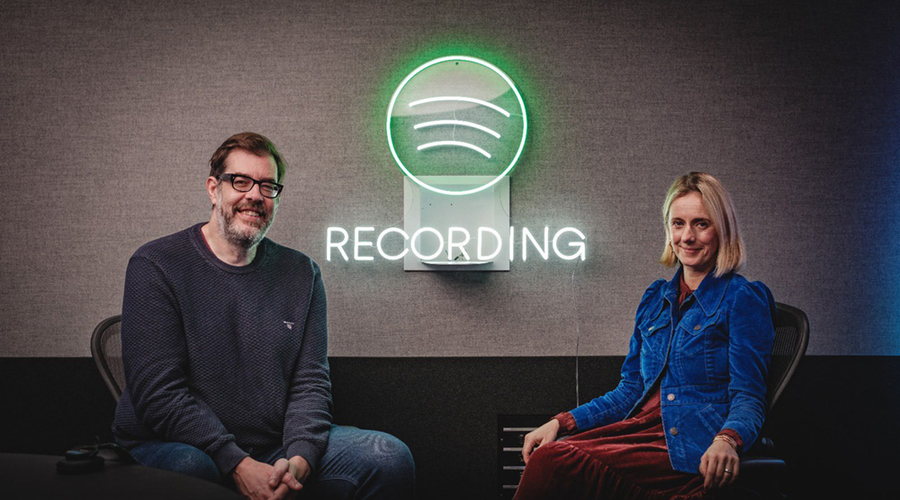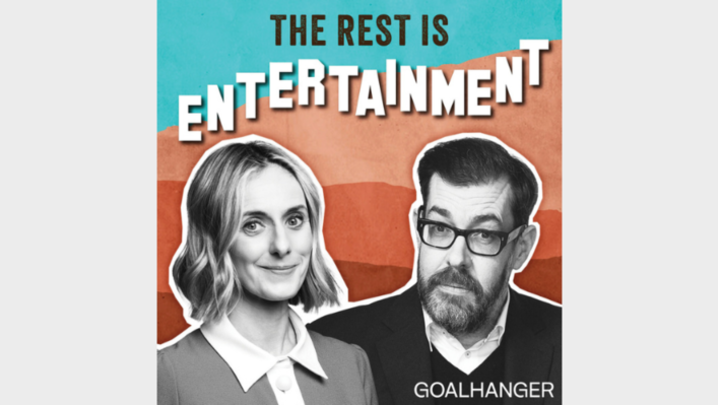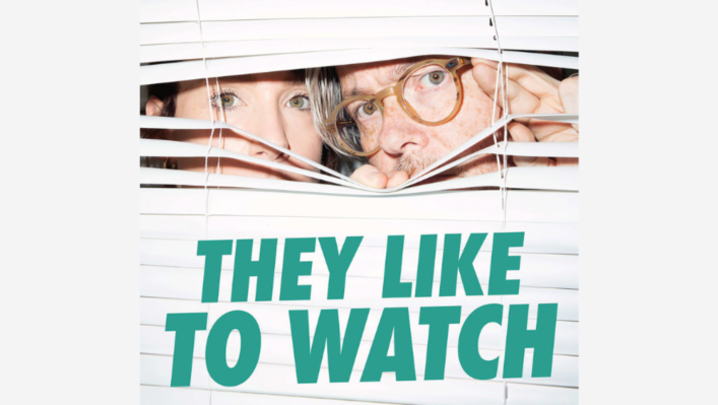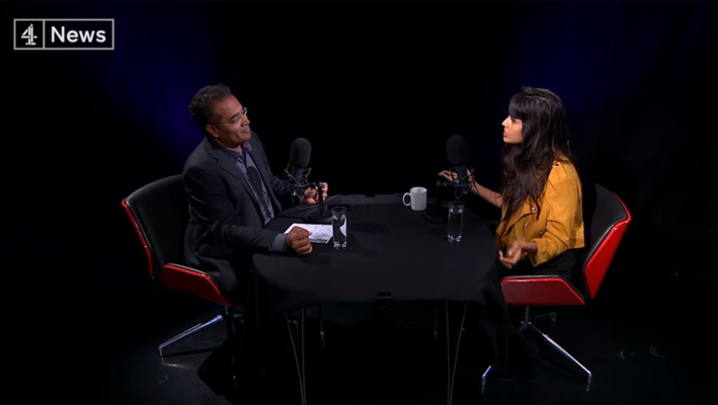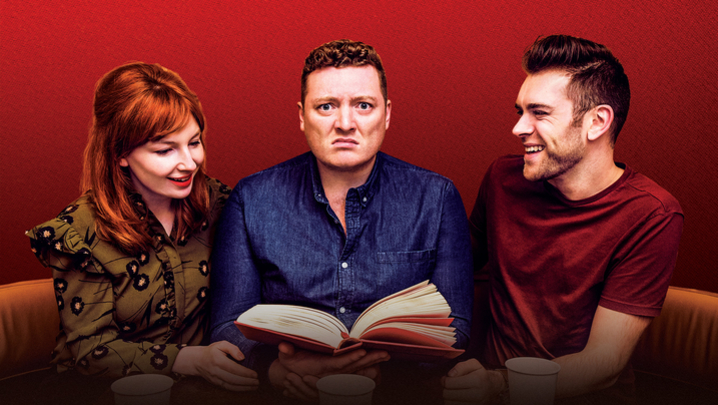From Off the Telly to The Rest Is Entertainment, media podcasts are booming. Simon Bucks can’t stop listening
Which are your go-to podcasts? The chances are that at least one is on media and entertainment. According to Ofcom’s latest survey, it is the number-one genre, at least for the under-50s, and the choice is ever widening.
In less than a year, The Rest Is Entertainment, Off the Telly and a new, hour-long version of Radio 4’s The Media Show have come along, plus several others, including Media Confidential, and When It Hits the Fan.
“It’s because media people love talking about media,” says Matt Deegan, presenter of the long-running The Media Podcast. “And everyone has an opinion on the media because they consume it.”
Tom Nicholson, of the website Pod Bible, says: “It’s very hard to get your podcast noticed if it doesn’t have celebrities attached. So, it’s natural that there will be a lot of media and entertainment podcasts. It’s a crowded landscape.”
Rhian Roberts, BBC Commissioning Editor, Podcasts, Formats and Digital, says: “I think it’s because the audience has got more choice. If you’re like me, you want to know how to choose what to do with your time.”
Roberts is the brains behind Off the Telly, a sort of fast-talking audio Gogglebox fronted by two well-known TV faces: EastEnders actor Natalie Cassidy and Gavin & Stacey’s Joanna Page. The pair’s standard introduction is: “Please remember that there might be some spoilers in this because we are talking about telly that we’ve been watching over the week. And there could be a little bit of swearing.”
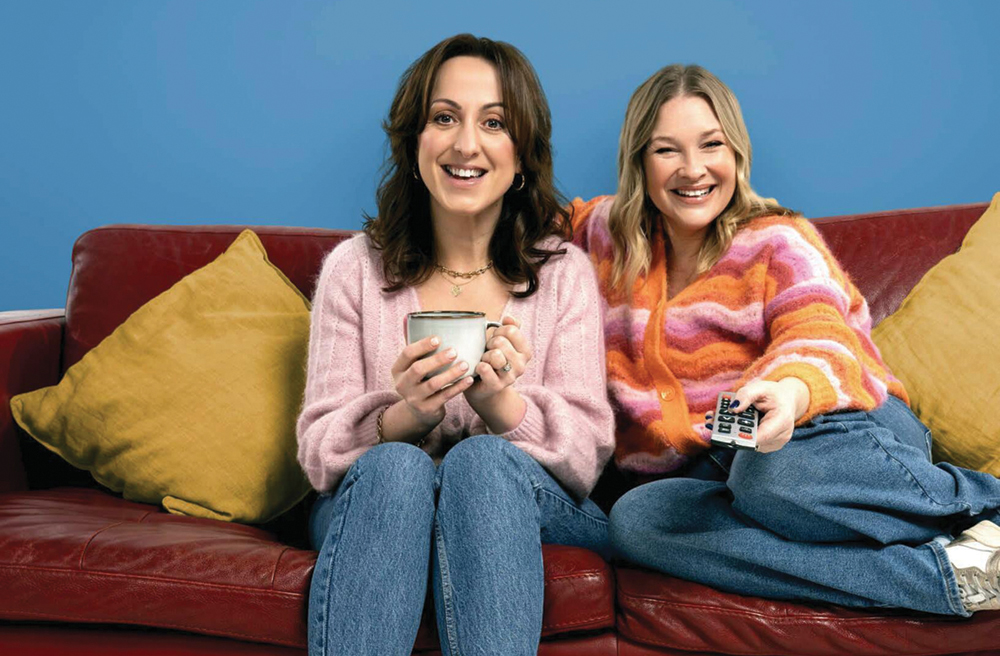
(Credit: BBC)
That’s pretty much it: two friends having an uncensored quick-fire natter, mostly about telly, and a bit about life.
“I was thinking about what we can do for the audience that watches TV in a way that isn’t necessarily the way that a critic would watch,” explains Roberts. “We’re watching TV because we want to be cheered up or made happy, or because the routine of it is a comfort to us.”
At Gary Lineker’s outfit, Goalhanger, which bills itself as the UK’s largest independent podcast company, co-founder Tony Pastor is quietly celebrating The Rest Is Entertainment, the fastest growing addition to the “The Rest Is…” pod franchise. It is presented by Richard Osman and Marina Hyde, both of whom will be appearing at the RTS London Convention in September.
“We felt there was a fascination in the burgeoning world of media and entertainment,” says Pastor. “We wanted to be quite broad, to talk about what’s being released on Netflix, the state of the British newspaper industry, what the best books coming out are.”
Pastor is inspired by the scale and quality of media podcasting in the US. “America is more advanced than us. It’s got a very sophisticated conversation going on about the media world, particularly about the entertainment industry, which isn’t really happening in the UK.”
‘The Rest Is Entertainment [audience] is growing by something like 10% a week’
The Rest Is Entertainment is just over six months old, but has already reached 2 million monthly downloads and, says Pastor, the audience is growing by something like 10% a week. Moreover, the gender split is roughly even, a key ambition for Goalhanger, whose other The Rest Is… podcasts on history, politics, money and football skew heavily male.
Osman and Hyde, both TV experts, lift the lid on industry secrets – from the power of agents to how panel show scoring works and the key to acting like a convincing corpse. But they are equally ready to dissect the business and political side of media: recent episodes have focused on the Disney board battle, Hugh Grant’s phone-hacking settlement with The Sun and how the habits of TV viewers align with their voting intentions.
This is turf traditionally occupied by the more industry-targeted The Media Show on BBC Radio 4, now extended to an hour, with two-headed presentation by Katie Razzall and Ros Atkins.
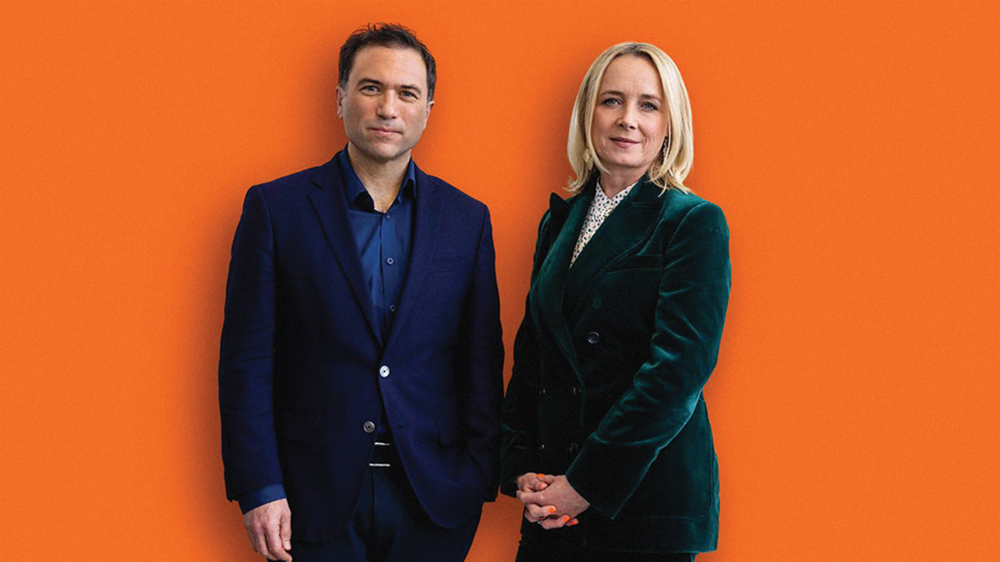
(Credit: BBC)
“It’s about democracy,” says Mohit Bakaya, Controller of BBC Radio 4. “I doubled the length because I felt it was important to dig into how people are getting their information and how they can begin to pick between truth and disinformation.
“We asked the team to do more on the global view, to look at the tech giants and the way they are affecting our democracy, because that’s an area we have under-explored before. Then, of course, there’s the rise of the entertainment side, streamers, podcasting and all that. So, you’ve had this huge explosion over the past decade, and I felt that was absolutely worth an hour.”
Bakaya resists the suggestion that it is just an economy measure for a cash-strapped station: “You could say that, but most podcasts are an hour, some are two hours.
“This is simply about trying to give listeners more of what they should have in the areas where I think it matters most. And anyway, we’ve given it more resource.”
Although Razzall and Atkins’ new, double-length show has its lighter moments – including segments on Gladiators and the “joy of Saturday night television” – Bakaya agrees that those are not its focus: “Broadly, it’s there to look at the serious side of the media and the way it interplays with the public.”
Snapping at The Media Show’s heavyweight heels are two independent podcasts, Media Confidential, presented by former rival editors Alan Rusbridger (The Guardian) and Lionel Barber (Financial Times), which began last September, and Beeb Watch, launched in 2022 and fronted by Roger Bolton, veteran TV executive and defenestrated presenter of Feedback.
‘It is a competitive market, [don’t] underestimate how crowded it is’
Rusbridger, now Editor of Prospect magazine, says: “We start from the assumption that media is an important force in society and you should examine it just as you would any other. I don’t think that’s necessarily a shared assumption among all people in the media. When we ran Media Guardian, other media companies were outraged if we looked at them as you would a bank or a car manufacturer; it was somehow letting the side down.”
Podcasters tend to be cagey about listener numbers but, with low production costs, you don’t need many to turn a profit. At 5,000, Rusbridger says, Media Confidential breaks even. However, the underlying business rationale is to promote the magazine, especially to under-35s who, according to Ofcom, are the biggest podcast fans. “Prospect has been traditionally older ABC1 men, whom we love, but it would be nice to have ABC1 women and younger ABC1 men, too.”
As the name suggests, Beeb Watch is mainly, though not exclusively, a vehicle for Bolton to hold his former employer’s feet to the fire. “With the BBC Charter coming up [for renewal] in 2027, with the licence fee under intense pressure, with the media landscape changing, I was keen to get a debate going,” he says. “Is there a role for public service media? What is it? What is the best way of delivering it? How should we pay for it?”
Bolton thinks that increased media literacy lies behind the upsurge of podcasts about the industry, but concedes that part of his own motivation is ego. Does the show cut through? So far, yes, he says, it’s reaching about 2,000 listeners – more for a hot topic – and, yes, a nice irony, his BBC pension helps to subsidise it.
For Goalhanger, on the other hand, podcasting means serious money. It has now overtaken its original video business, with big-name advertisers and sponsors such as Disney, ITVX and Sky vying for spots.
“It’s become the absolute centrepiece of our world,” says Pastor. The big attraction is simplicity. “Getting a TV commission is difficult, because there are lots of people trying to persuade commissioners they should part with their budgets. If we have an idea for a show, we meet Richard Osman for lunch, we ring up Marina Hyde. And, two weeks later, we’re piloting and, two weeks after that, we’re producing it and it’s out.”
The profits are split three ways, between the two presenters and Goalhanger. “We operate pretty much like a collective; they’re in it with us, and we build the show together.”
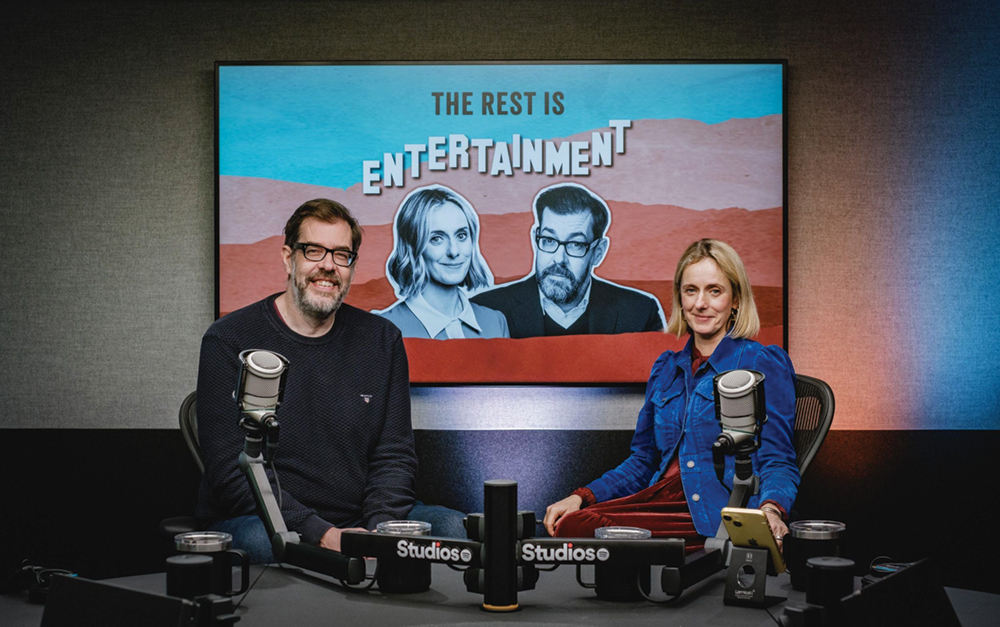
Goalhanger may have found a goldmine, but don’t expect a general bonanza, warns James Cridland, Editor of podnews.net. Although UK podcasting is vibrant, he says it performs worse on ad revenue than you might expect because the BBC’s ad-free output constitutes half the market. UK pod revenue is projected to reach £54m in 2024, a fraction of the $3.2bn (£2.6bn) in the US, according to Statista.
“The BBC is a big disruptor,” says Cridland. “That’s why the commercial industry is a bit nervous about the announcement that, possibly by the end of next year, the BBC’s UK podcasts on third-party platforms – though not BBC Sounds – will contain advertising.”
By the time you read this, the Beeb’s Off the Telly will be appearing twice a week, with the second show featuring voice-note messages from listeners revealing their “comfort watches”. That sounds like a measure of success but Roberts isn’t revealing listener numbers yet, not even to the presenters.
“They are as good as I would expect at this point. You have to build an audience. It’s a competitive market, no one should underestimate how crowded it is. We’ll talk numbers when we get to millions,” she says.
What’s next? Goalhanger has successfully pioneered podcast live shows with The Rest is Politics combo of Alastair Campbell and Rory Stewart, to which Pastor is adding two The Rest Is History live events in June.
“I think Richard and Marina would definitely work as a live show,” says Pastor. “Richard is a wonderful host and Marina sells out ticketed events for The Guardian all the time. The only restriction is their availability.”
Roberts also likes the idea of Off the Telly live shows, one day. For now, she is deep into American podcasts – “not to steal but to see if I can pick up any hints and tips”. Among her favourites is How did This Get Made? – billed as a “comedy podcast that celebrates bad movies”. You saw it here first.

